The 2023 Hoosier Resilience Heroes include professionals, students, and volunteers dedicated to climate policy, renewable energy, sustainable business practices, and more. Read about the heroes and their contributions to Indiana communities and the state.
2023 Hoosier Resilience Heroes
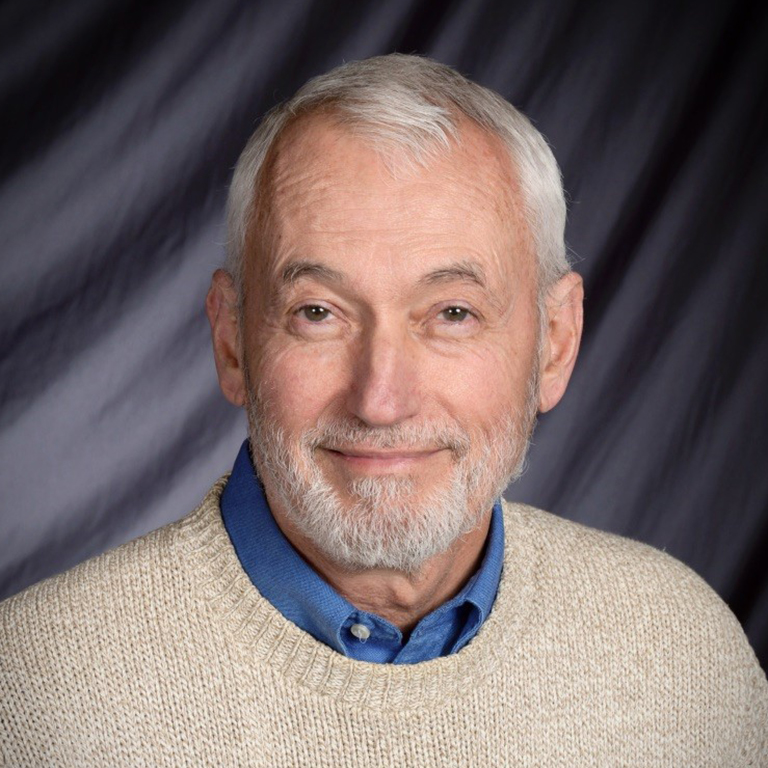
Darrell Boggess
Volunteer, Solar Indiana Renewable Energy Network
BLOOMINGTON –When retired engineer Darrell Boggess heard that state incentives for solar systems were being reduced, he committed himself to helping more people go solar. From 2016 to 2023, he led Solarize Bloomington, a program administered by the nonprofit Solar Indiana Renewable Energy Network, to streamline solar adoption for residents of south-central Indiana. The effort led to hundreds of new installations and inspired the creation of nonprofits Solarize Indiana, a statewide program, and the regional Indiana Solar for All, which has funded solar systems for 40 low- and middle-income households. Boggess helped his church go solar in 2012, and, with a ground array in 2022, it became a net zero-energy building. He has advised businesses, governing boards, and congregations across Indiana on managing their energy consumption and leveraging state and federal incentives to electrify appliances for the next phase of energy evolution, reducing the adverse effects of fossil fuels.
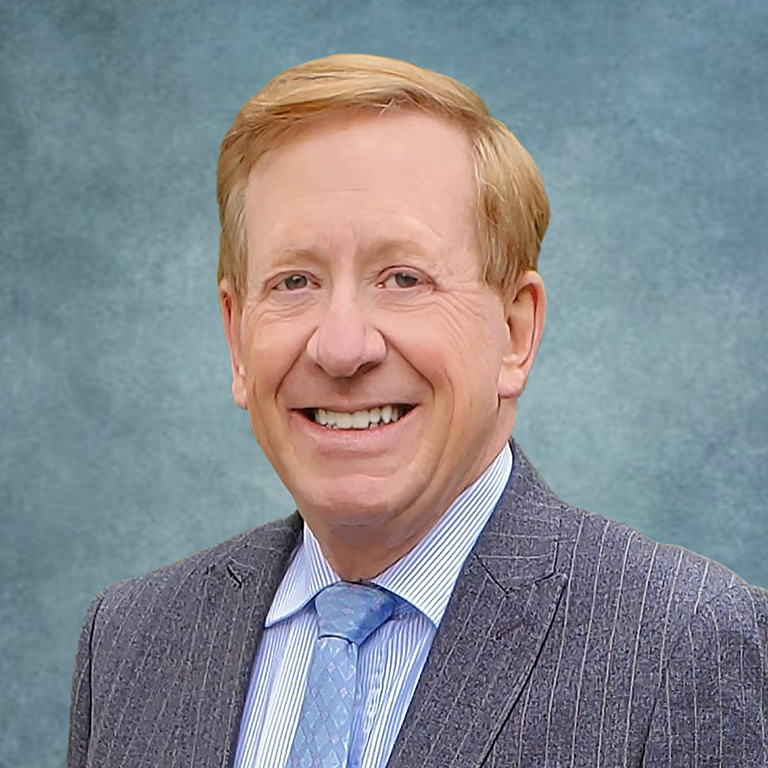
Jim Brainard
Mayor, City of Carmel
CARMEL – For 27 years, Jim Brainard has championed climate-friendly and sustainable initiatives as the elected leader of the City of Carmel. With Brainard’s support, Carmel became the first Indiana city to pass a climate resolution in 2017; the city adopted its first climate action plan in 2022. Brainard, a member of ERI’s Indiana advisory board, has worked to balance Carmel’s growth with its environmental footprint, promoting urban development that encourages walking and biking and replacing more than 100 traditional intersections with roundabouts, a change that has reduced the city’s carbon emissions by an estimated 28,000 tons annually. Other policy initiatives executed under Brainard’s leadership have advanced adoption of alternative fuel vehicles, energy-efficient lighting, clean energy, and recycling. In 2019, Brainard was chosen as one of 24 city leaders to serve on the steering committee for Climate Mayors, a network of more than 400 mayors who have committed to upholding the Paris Climate Agreement.
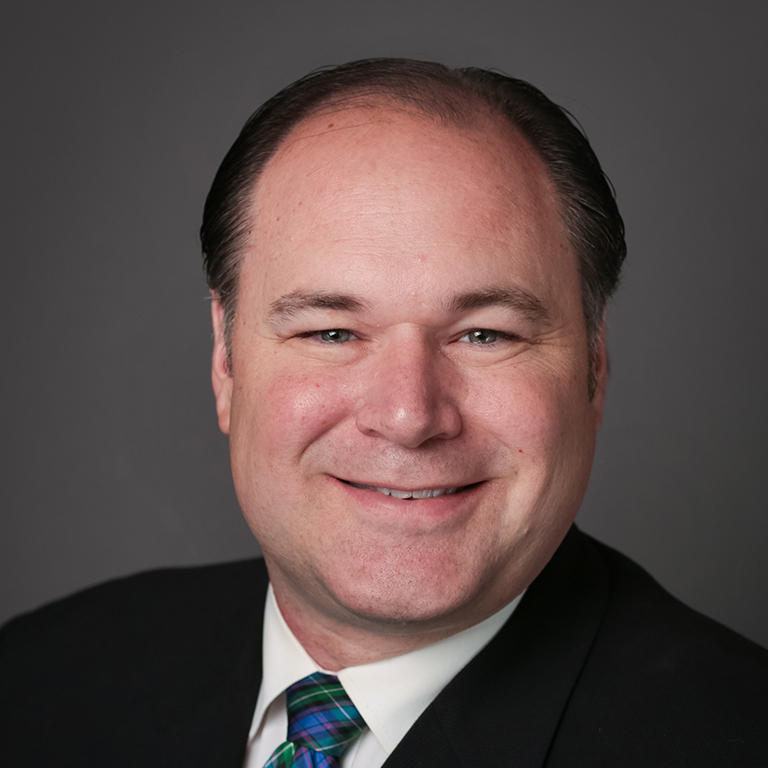
Todd Cavender
director of environment and sustainability, Indianapolis Airport Authority
INDIANAPOLIS – Todd Cavender, director of environment and sustainability for the Indianapolis Airport Authority (IAA) has pushed IAA to the forefront of sustainability globally. In 2022, Cavender played a significant role in the Indianapolis International Airport’s decision to use new lower-carbon technology in its $190 million runway construction project. As a result, the project’s embodied carbon will be reduced by 15 percent, a substantial reduction from traditional methods. The Institute for Sustainable Infrastructure recognized this project with its highest award for sustainability and resilience. Over his career, he has coordinated efforts to reduce the airport’s energy usage and increase long-term sustainability. Examples include the installation of energy-efficient lighting, expanding the airport’s solar array—the largest on any airport property in the world—and educating IAA staff and community partners on sustainable practices. Currently, Cavender is leading an update of the airport’s sustainability master plan, the largest plan ever funded by the Federal Aviation Administration and the first to focus on environmental resilience.
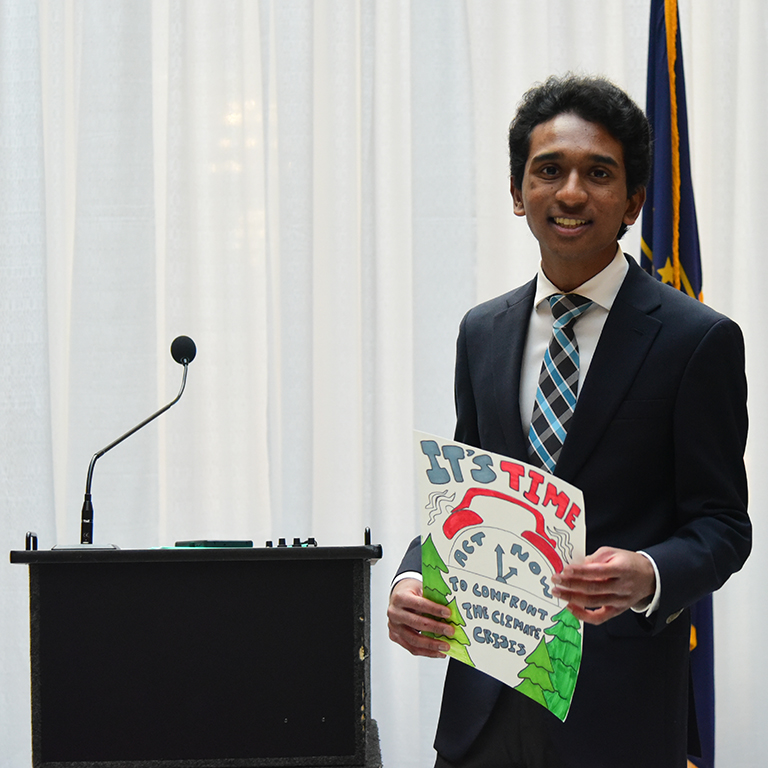
Rahul Durai
junior, West Lafayette Junior-Senior High School
WEST LAFAYETTE – As the co-executive director of Confront the Climate Crisis (CTCC), a statewide youth-led climate action organization, Rahul Durai has helped rally young Hoosiers in support of a sustainable future. In his hometown, Durai has participated in climate advocacy events, serves as a youth commissioner for West Lafayette’s Go Greener Commission, and is spearheading efforts to get solar panels on schools. At the Indiana Statehouse, he has worked to pass bipartisan climate legislation that acknowledges the threat of climate change to the state and establishes a task force to address it. (The legislation received a hearing in February 2023 but was not taken up.) His passion for climate communication has led him to engage a diverse range of audiences, from students to state senators, on carbon mitigation, sustainability, resilience, and equity. Despite the roadblocks to CTCC’s goals, Durai remains a source of positivity and inspiration to those who share his vision for a climate resilient Indiana.
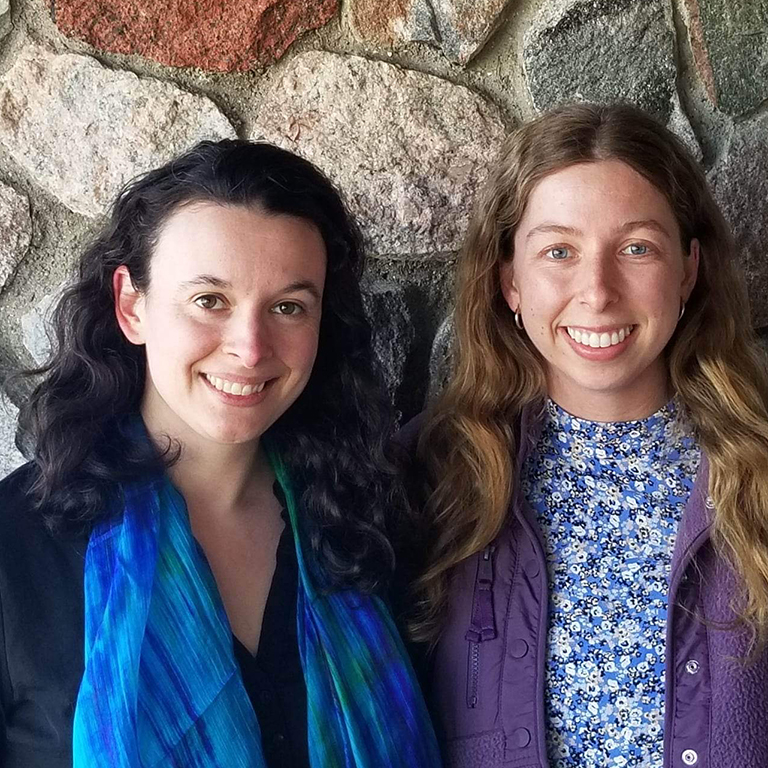
Megan Eigsti and Maggie Holohan
medical students, Indiana University School of Medicine-South Bend
SOUTH BEND – Maggie Holohan and Megan Eigsti are third-year medical students at the IU School of Medicine-South Bend committed to educating the medical community about the health threats posed by climate change. The duo created a four week-long course to help students better understand the role of physicians in addressing climate change and its consequential disease burden, which includes greater rates of heat-related illness, allergies and asthma, infectious and vector-borne conditions, maternal-fetal illnesses, and mental health concerns. Available to third- and fourth-year medical students within the IU School of Medicine, the course also covers how climate change is disrupting healthcare delivery and sustainable practices in healthcare.Holohan and Eigsti presented their climate education work at the Western Michigan Medical Humanities conference in October 2022. Currently, they are working on a comprehensive list of what healthcare systems are doing to address their climate impact, which will be shared with top administrative leaders of other healthcare systems.
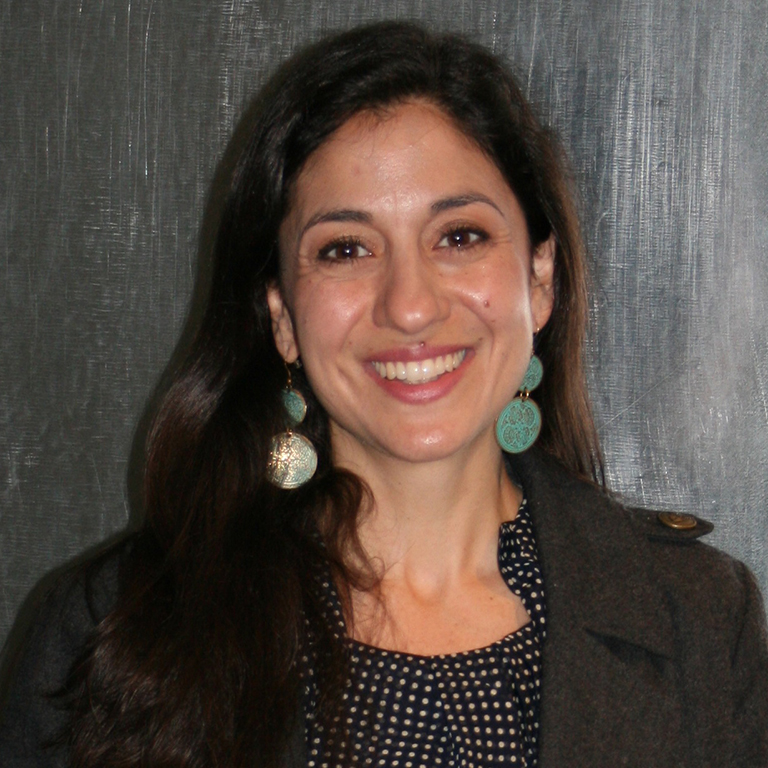
Dana Habeeb
Assistant Professor, Indiana University Bloomington
BLOOMINGTON – An assistant professor at IU’s Luddy School of Informatics, Computing, and Engineering, Dana Habeeb makes environmental data accessible to communities so that residents can bolster resilience to climate change impacts, such as extreme heat. For the past two years, Habeeb has led a pilot program called Beat the Heat to help Indiana local governments protect Hoosiers from the health impacts of hot summer days and nights, which are becoming more common due to climate change. Working with the communities of Clarksville and Richmond, Habeeb’s team created heat vulnerability maps for both municipalities that combined geospatial, temperature, and sociodemographic data to identify vulnerable neighborhoods in each community. The maps, along with public surveys, interviews, and focus groups, helped inform the development of community-wide heat management plans that include tailored strategies and recommendations for heat preparedness and response. With hot days and nights poised to increase in the coming decades, these efforts could become a blueprint for other Hoosier communities.
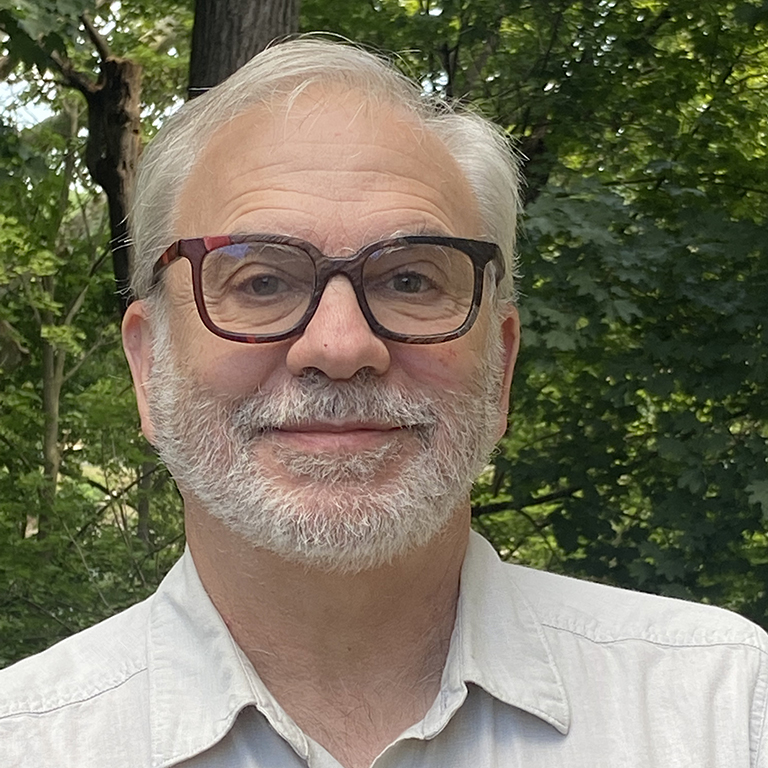
Mike Keen
managing partner, Hometowne Development LLC
SOUTH BEND – As Managing Partner of Hometowne Development LLC Mike Keen has become a community organizer and leader of fair, equitable, and environmentally friendly small-scale neighborhood redevelopment in South Bend. After acquiring 20 vacant lots in South Bend’s near northwest neighborhood, Keen has taken the lead role in the development of Portage Midtown, a sustainable neighborhood demonstration infill project. Ongoing efforts include the construction of net-zero energy-efficient homes and a complete renovation of the abandoned Ward Bakery building, which is being converted into an incubator space for up to 60 businesses. A retired professor of sociology and sustainability studies at IU South Bend, Keen founded the Center for a Sustainable Future, a community-facing organization connecting residents of South Bend with resources on energy efficiency, recycling, solar energy, and more. Throughout his life and career, Keen has worked to educate others on the importance of creating resilient communities that can withstand a rapidly changing economy and climate.
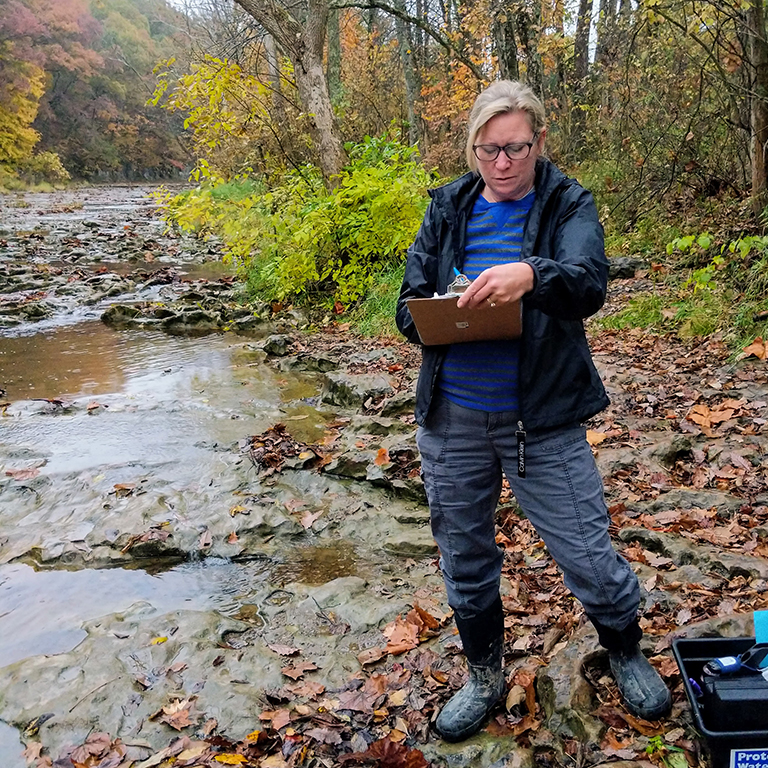
Julia Lowe
chair, Sierra Club Hoosier Chapter
COLUMBUS – As chair of the Sierra Club Hoosier Chapter, Julia Lowe has devoted herself to raising the environmental consciousness of her community, policymakers, and Hoosiers across the state. In Columbus, she helps educate residents about the importance of native plants and pollinators, securing a grant from the Grassroots Network in 2017 to distribute native plants locally and create public pollinator gardens in partnership with local schools and the parks departments. She coordinates volunteers to monitor local streams for pollutants as part of Sierra Club’s Winding Waters group, helped found the Blazing Stars CISMA of Bartholomew County to combat the spread of invasive species, and organizes community members in support of responsible public land management, clean water, and clean air. Lowe is also active at the state level, regularly attending legislative sessions, making appointments with legislators, and leading public discussions on sustainability and resilience. She’s an active mentor, too, sharing her knowledge and passion for environmental advocacy with young Hoosiers.

Tim Maloney
senior policy director, Hoosier Environmental Council
INDIANAPOLIS – For 40 years, Tim Maloney has dedicated himself to promoting solutions to Indiana’s chronic environmental problems. As a mainstay of Indiana’s largest environmental advocacy organization, Maloney’s work spans an array of policy issues, from forest and wildlife conservation, to land use, to public transit. Maloney has become a leading voice for the protection of Indiana waters from coal ash, steeping himself in the policy and science required to put an end to this toxic hazard. This work has become even more important as climate change brings more heavy rainfall to the Midwest, increasing the likelihood that minimally contained coal ash will contaminate nearby communities. A champion for low-carbon transportation, Maloney has helped advance mass transit law and advocated for the Mounds Greenway, a linear park to conserve the free-flowing west fork of the White River. Throughout his career, Maloney has generously shared his environmental policy knowledge with students and young colleagues, mentoring the state’s next generation of environmental and climate advocates.
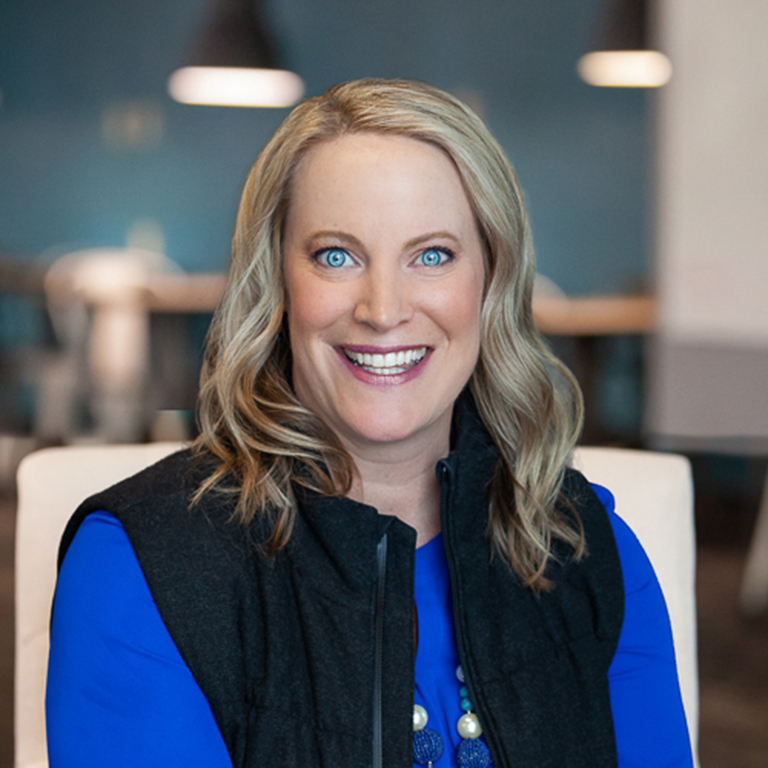
Allyson Mitchell
vice president, Mobile reCell
INDIANAPOLIS – As the vice president of sustainability at Mobile reCell, Allyson Mitchell helps guide tech companies toward sustainable practices with their technology and mobility assets, applying her years of experience advancing environmental sustainability in local government, business, higher education, and nonprofit industries. Throughout her career, Mitchell has worked to educate and promote the idea of a circular economy, which prioritizes the reuse of products and materials and the minimization of waste. As the executive director of Circular Indiana, she introduced the circular economy concept to thousands of Hoosiers and led the effort to pass legislation allocating $4 million for recycling and circular economy investments in central Indiana. Prior to that, Mitchell led green building initiatives for the City of Indianapolis, helping to spearhead the city’s first annual sustainability report. In 2020, Mitchell was chosen to serve on the Indianapolis City-County Council’s Commission on Environmental Sustainability, sharing her expertise on waste, recycling, and the circular economy.
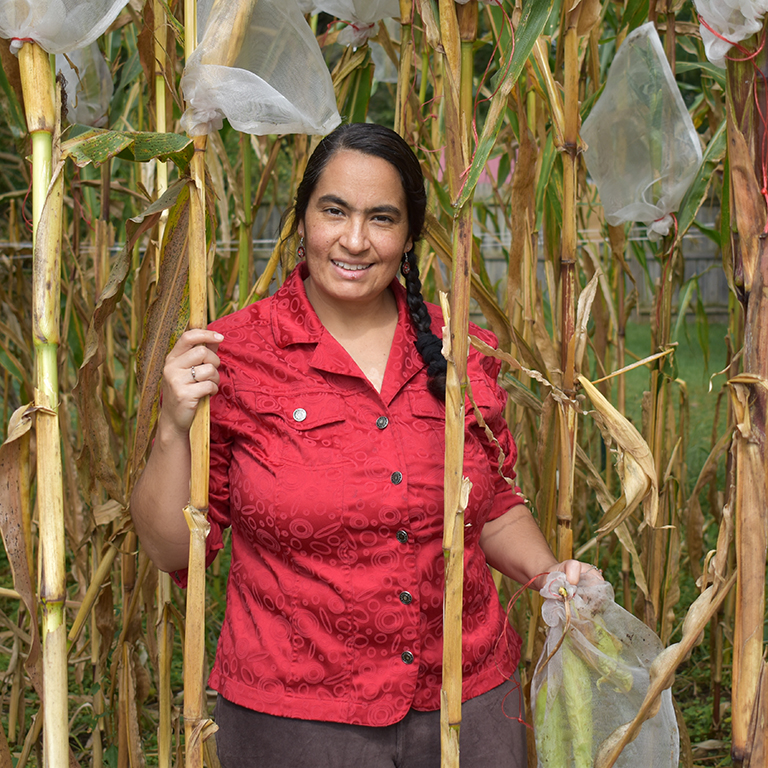
Zuleyja Prieto
heirloom seed preservationist, Heritage Corn project
GOSHEN – To inspire local food security and celebrate the contributions of Indigenous and migrant cultures to northern Indiana, Zuleyja Prieto started a project funded by the USDA’s Sustainable Agriculture Research and Education program to grow and preserve heirloom corn varieties. Working with more than 20 families and individuals, Prieto distributed heritage corn seeds and provided bilingual coaching in small-scale corn planting techniques. Throughout the 2021 and 2022 growing seasons, participants ranging from youth to elderly gathered and discussed the cultural value of heritage corn, planting techniques, and how to address cultivation challenges. As part of the project, Prieto helped organize and teach 20 small gatherings and three larger community events to raise awareness about Indigenous food and demonstrate traditional food customs, including hand grinding, cooking, and communal eating. As climate change places additional stresses on modern food systems, Prieto’s work represents an important strategy for building community-level resilience.
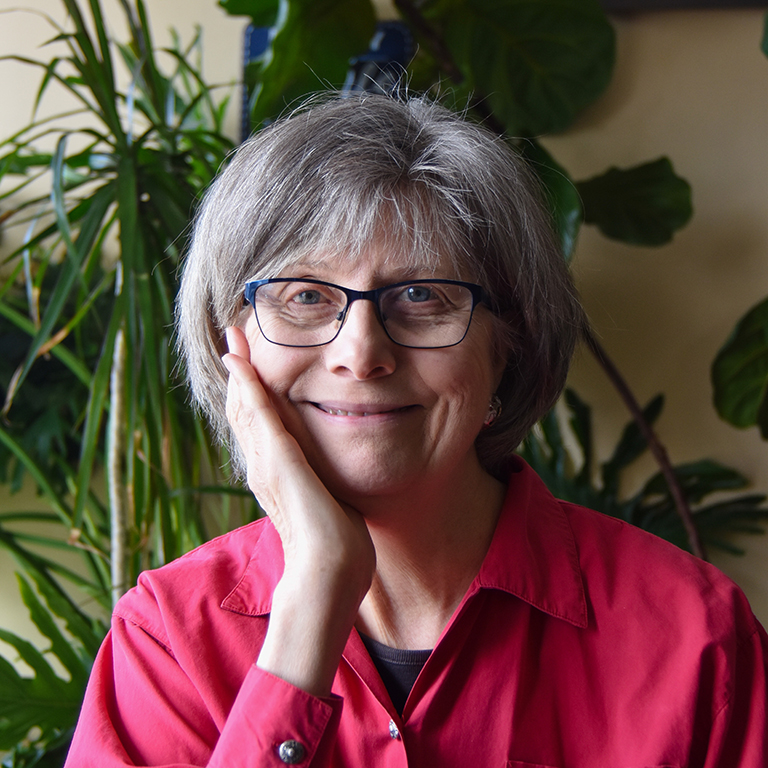
Connie Wachala
founding member, Highland Neighbors for Sustainability
HIGHLAND – In recent years, Connie Sowa Wachala has helped galvanize the local sustainability movement in Northwest Indiana. In 2020, she organized a resilience conference, which attracted 65 local participants. That same year, Wachala helped establish Highland Neighbors for Sustainability, a grassroots organization that advises the Town of Highland on climate issues and engages residents of the Region on climate and environmental issues. To accelerate Northwest Indiana’s path toward climate resilience, Wachala was part of a team who lobbied local governments in Lake, Porter, and LaPorte Counties—a combined 16 government entities—to complete a regional greenhouse gas inventory as a first step in developing climate action plans. She works to connect climate activists in the Region to maximize their combined impact and engages public officials on the benefits of local climate action. In addition, Wachala is helping neighboring communities lobby their elected officials to create their own sustainability commissions.


